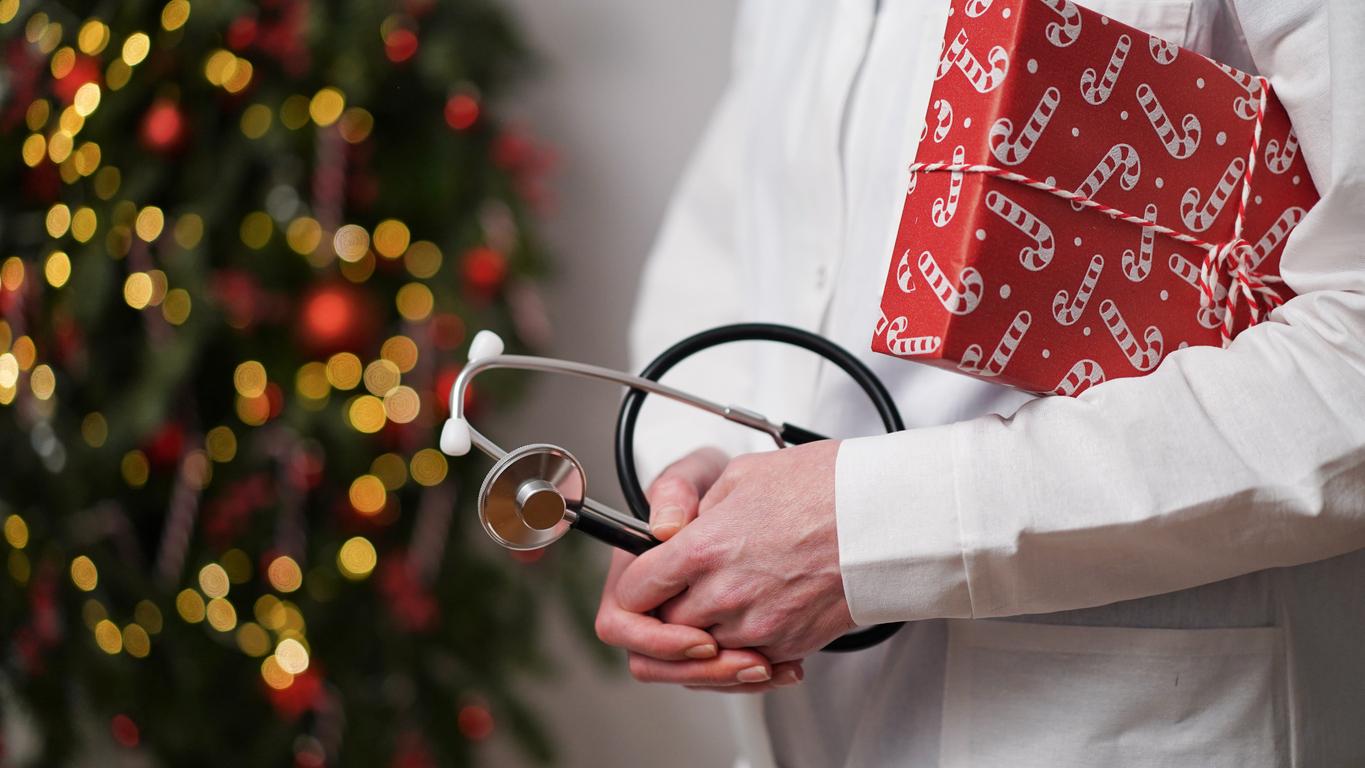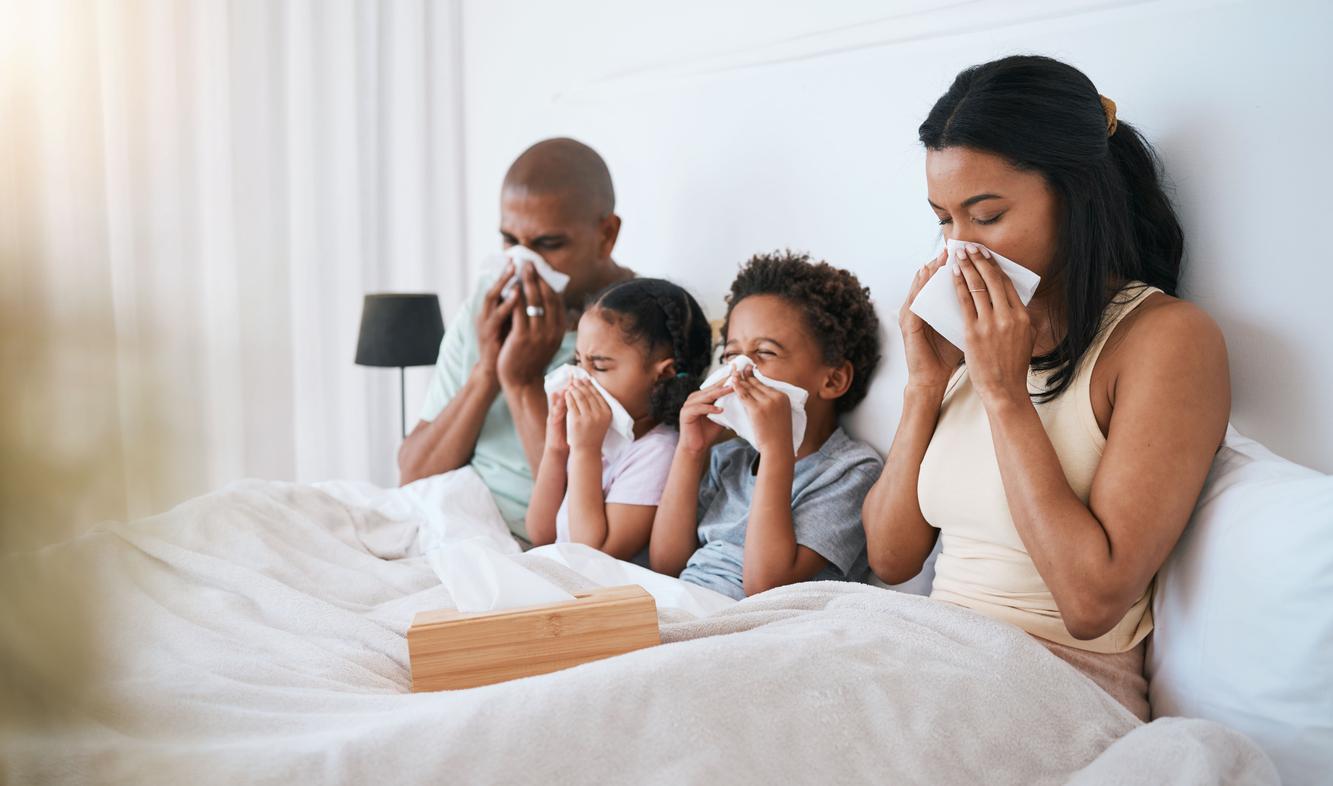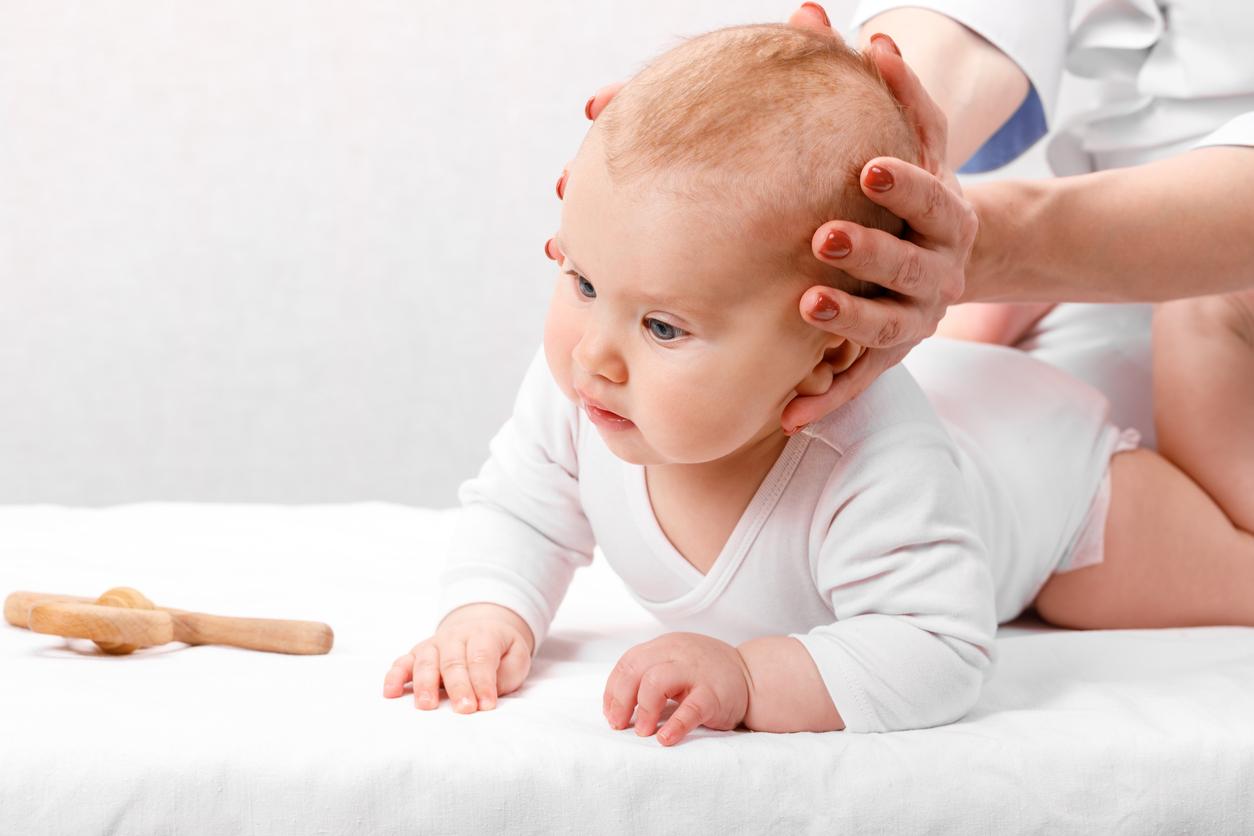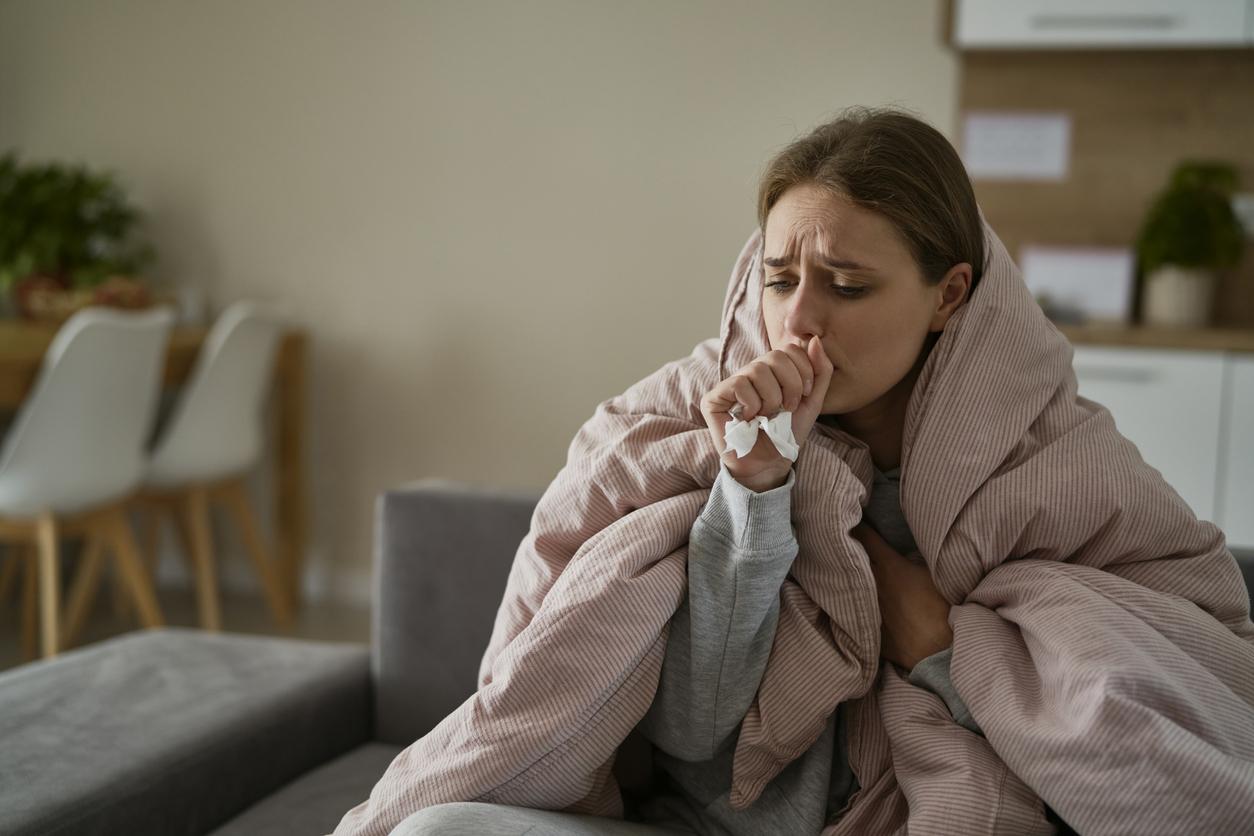Bronchiolitis is currently wreaking havoc in France: in an epidemiological bulletin published on November 16, 2022, Public Health France announces an unprecedented number of hospitalizations, never reached for 10 years.
In detail, 5,565 children under the age of 2 were seen in the emergency room for bronchiolitis between November 7 and 13, 2022; 36% of them were hospitalized. 94% of hospitalized children were under 1 year old.
How to recognize bronchiolitis?
Bronchiolitis is a respiratory disease that mainly affects children before the age of 2, especially when they frequent places of community living (nanny, crèche, etc.). Caused by the Respiratory Syncytial Virus (RSV), bronchiolitis is responsible for easily recognizable symptoms:
- A stuffy nose or a runny nose,
- A low fever (above 37.5°C),
- A dry cough,
- Wheezing and/or faster than normal breathing
- Shortness of breath.
Although sometimes impressive, bronchiolitis is a benign disease; the evolution is generally favorable within 8 to 10 days (the cough can persist for 15 days). Drug treatment is not necessarily necessary: nose washes may be sufficient.
My baby has bronchiolitis: when should I be worried?
“If your child shows signs of moderate bronchiolitis (i.e. cough, stuffy nose, runny nose, low fever…), it is not necessary to go to the hospitaladvises Dr. Frédéric Le Guillou, pulmonologist. Simply make an appointment with your doctor or pediatrician, without urgency, for medical advice and (possibly) appropriate treatment.“
Urgent medical advice (that is to say: during the day) or a visit to the Emergency Department is required in the event ofdeterioration of general condition : “your child has symptoms that could be reminiscent of bronchiolitis and he is abnormally “soft”: he no longer wants to eat, he lacks muscle tone, he is not interested in his surroundings, he sleeps more than usual, he looks “elsewhere”…” illustrates Dr. Le Guillou.
Ditto: you must see a doctor/paediatrician during the day or (if this is not possible) go to the emergency room if the child has specific risk factors. “A child with multiple disabilities, a child with trisomy 21, a child with myopathy, an immunocompromised child, a child who suffers from respiratory or heart failure… must imperatively be seen by a doctor or at the hospital as soon as first signs of even moderate bronchiolitisremarks Dr. Le Guillou.
Finally, a child aged less than 2 months who develops symptoms suggestive of bronchiolitis should also be seen by a doctor/paediatrician as soon as possible – ideally within the day.
My baby has bronchiolitis: what are the serious signs to watch out for?
If your child has developed moderate bronchiolitis, it is best to monitor him. “If he develops a severity criterion (or more), it is best to consult as soon as possible (during the day) or to go to the Emergency Department without waiting” recommends the pulmonologist. The severity criteria to be monitored are as follows:
- A respiratory rate greater than 60 breaths per minute : “the child breathes in a jerky but inefficient way, he seems to be “looking for his air”, one has the impression that he cannot breathe in correctly“develops the specialist.”When you put your hand on your child’s chest, you can count over 60 breaths in a minute.“A respiratory rate of less than 30 cycles per minute is also worrying.
- An abnormally high heart rate or abnormally low (greater than 180 beats per minute or less than 80 beats per minute). “This value is measured using a saturometer.”
- Breathing pauses : the child seems from time to time “in apnea”, he does not breathe, he holds his breath.
- Respiratory beats : “on inspiration, there is a hollow between the child’s ribs and/or a hollow between the two collarbones, just above the breastbone“. A beating of the wings of the nose is also a criterion of seriousness.
- A thoraco-abdominal swing : “when the child breathes, his belly and his thorax inflate alternately“.
- A loss of appetite : “the child eats less than usual, at least half“.
Doctor’s advice. “If your child has bronchiolitis and you are worried/concerned, start by calling your GP or pediatrician for initial medical advice. Reserve Emergencies for exceptional situations!“
Thanks to Dr. Frédéric Le Guillou, pulmonologist and president of the association Respiratory health France.
















